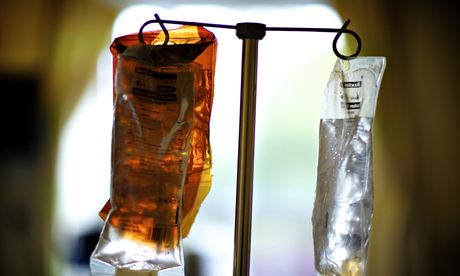- 15:27, 5 FEB 2019
- There's a chance to have your say before the NHS closes the unit to try to save money (Image: Getty images)
There are plans to close an "underused" out of hours urgent care centre in Hammersmith .
It's where you can go 24-hours-a-day to be seen urgently if your illness is not life threatening.
And, if you have strong views on that, now is the time to speak up.
Residents are to be asked what they think - there are six weeks to have a say.
The closure is one of several options which will be included in a consultation this month as the cash- strapped Hammersmith and Fulham Clinical Commissioning Group looks to save money.
It estimates that shutting one of its two urgent care centres which are open overnight from 8pm to 8am, reducing weekend plus GP appointments from one practice to three and cutting 155 extended hours GP appointments a week, could save £1m a year.
It said it had no plans to close the urgent care centre at Charing Cross Hospital, or reduce its hours from 2am to 6am.
So, how under-used is it?
An average of seven patients are seen at the urgent care centre at Hammersmith Hospital on any night.
Of those, an average of only two need emergency or urgent care, according to the CCG.
It said the highest number of people ever turning up between midnight and 8am was 18.
So it's up and down.
But that's still a lot of people.
In 2017/18, nearly 33,000 people visited, with 47,000 patients turning up at Charing Cross, which has seen a maximum of 20 people during the midnight to 8am slot.
Now the consultation begins
The CCG has already talked to Healthwatch about the best way to consult residents about the options.
MD Janet Cree told Hammersmith and Fulham’s health and well-being board that it was not practical to send letters to every patient. That data is not available.
It has already staged a series of pre-consultation events and discussed ways it will stage the formal consultation.
The CCG’s co-vice chair, Vanessa Andreae, said patients commented at last year’s pre-consultation events that "they were not always aware of what’s available. Having a single location could reduce that complexity".
She added many of the appointments were filled by the practices’ patients.
Ms Cree said: "There is nothing determined until we get that feedback."
Have your say
Councillor Ben Coleman, who is Cabinet member for health and adult social care urged residents to respond.
The Labour politician said:"Our local NHS is under attack from government funding cuts. Almost 50 people attend Hammersmith Hospital's Urgent Care Centre overnight each week and nearly one in three of these requires urgent or emergency treatment.
"This consultation could lead to the service being closed. I urge residents to respond."
The consultation will last six weeks.














